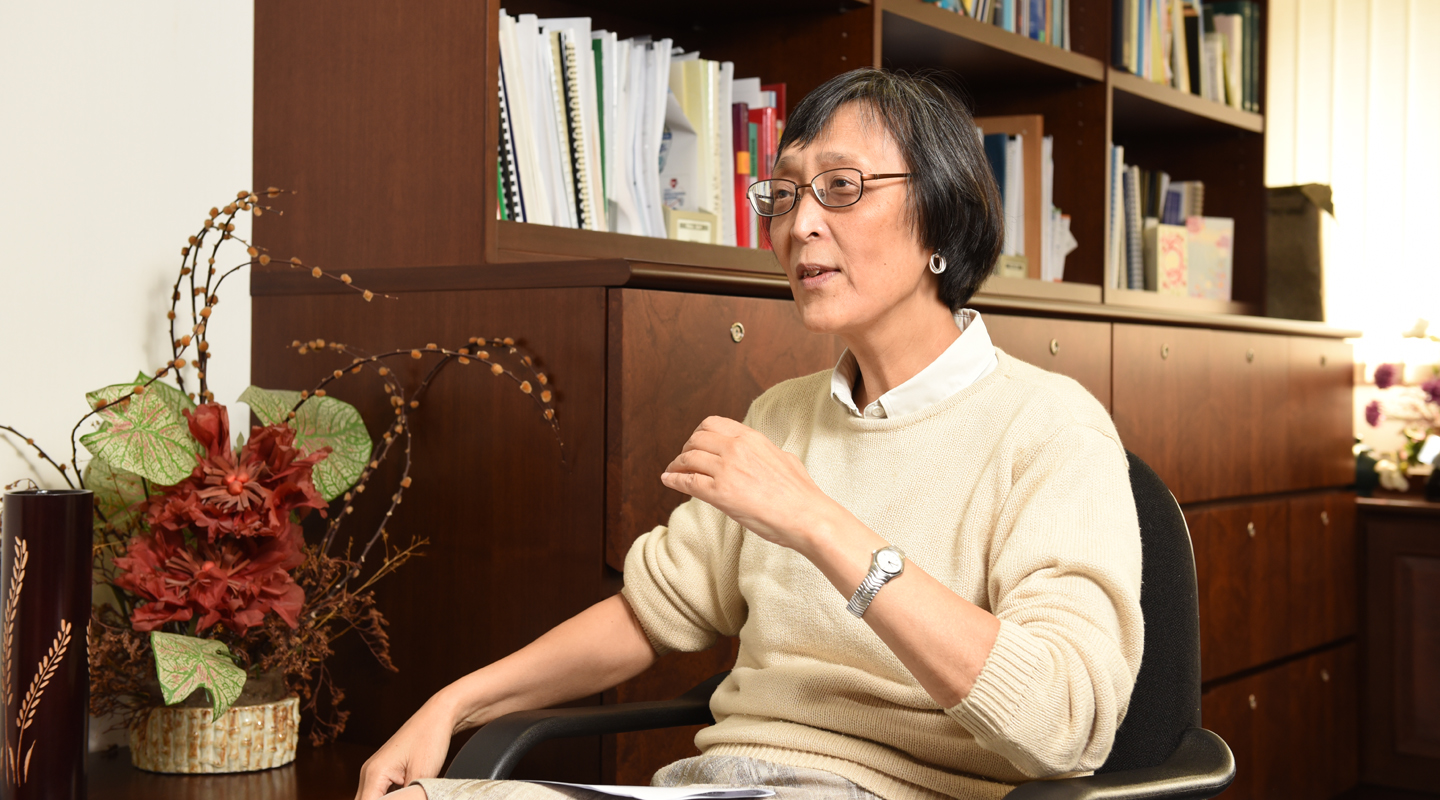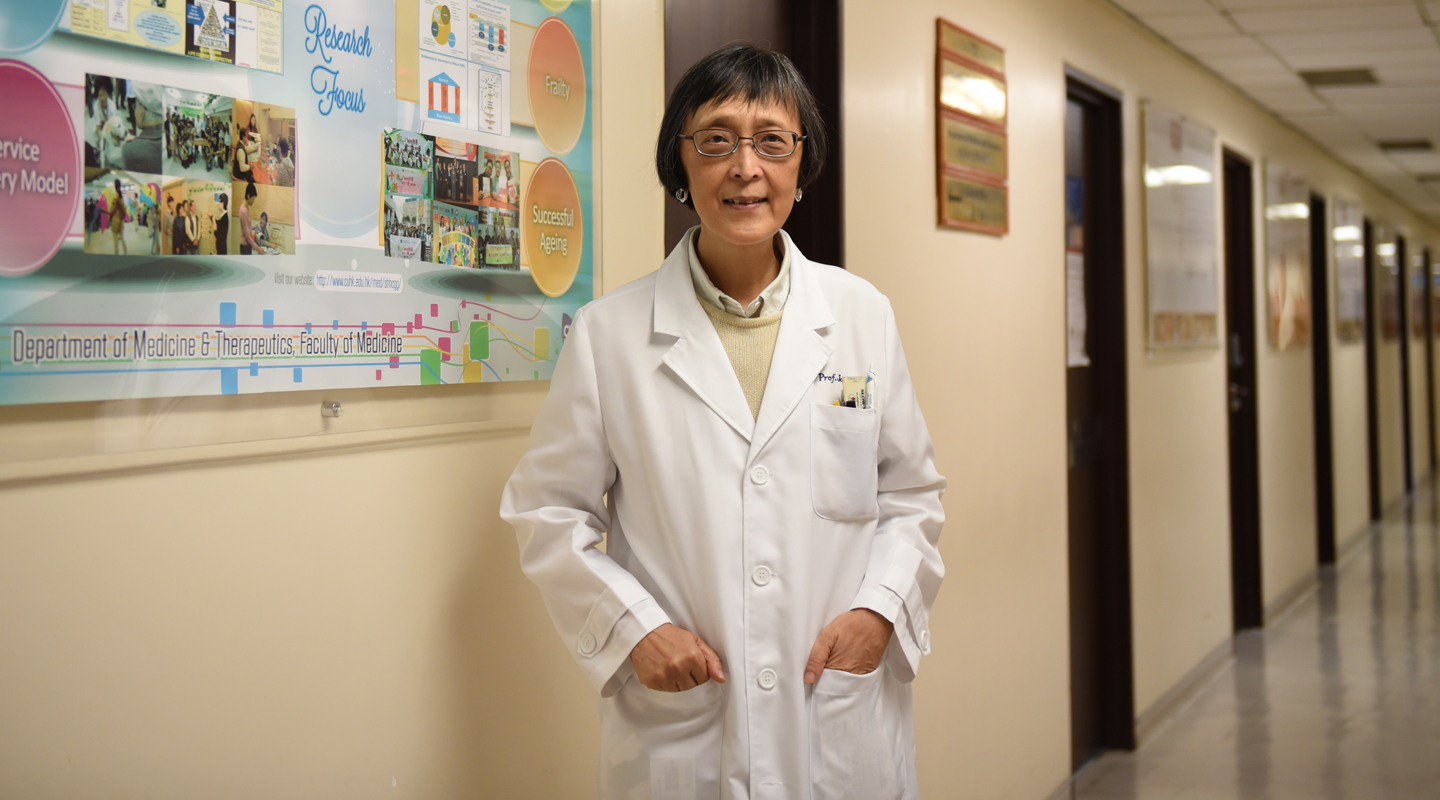Dear readers, With the launch of e-newsletter CUHK in Focus, CUHKUPDates has retired and this site will no longer be updated. To stay abreast of the University’s latest news, please go to https://focus.cuhk.edu.hk. Thank you.
Ageing is their problem, not mine. Really?
Prof. Jean Woo, an expert in gerontological medicine, clarifies a few myths about old age, and what her team is doing to make Hong Kong an age-friendly city.

What is the definition of ‘old age’?
You can compare life to a mountain. After you’re born, you move uphill. When you’re around 30 years of age, you reach the peak. After that, you head downhill. Your brain function declines and your physical strength deteriorates.
What is a common misunderstanding in society about the elderly?
Many people think that old people are those who live in nursing homes, go to centres for the elderly, or who are incapacitated or demented, lying in bed at geriatric wards. ‘They’re old people, not me.’ We have to change this mindset. Gerontology is about the process of decline I just mentioned.
How should we prepare for old age?
You have to make your peak higher. For example, bodybuilders with large chunks of muscle can afford to lose some. It’s the same for the brain. There are many connections between brain cells. Cognitive training can help you strengthen these connections. You’ll be still doing all right when you lose some of them. So, lifestyle is important. You have to constantly work out, eat healthily, and train you brain. Then you’ll be capable of doing many things when you grow old. Be old but not frail. Strength is not necessarily related to age. It’s about what you can do, and whether you’re still in control of your environment and your life.
How did you get into geriatrics?
Upon graduation in the UK, I tried my hand at one or two other specialties in some top hospitals in London, such as heart and lung. But they bored me to death. For example, in cardiology, most of the cases involved heart valve problems or clogged arteries. I like to treat patients from a whole-person approach.
I returned to Hong Kong in 1985. At that time the CUHK Faculty of Medicine was newly established. The founding dean Prof. Gerald Choa believed that the Faculty should focus on certain new areas. Geriatrics was one of them. So I took this path. I remember that a senior colleague said to me, ‘It’s too bad that you choose to work in this field. You won’t have many research opportunities.’ But that’s not true. I find it very fruitful.

Why did the University set up the Institute of Ageing?
Our vision is to make Hong Kong an age-friendly city, which was the theme of the launch conference of our institute held in early October. The institute doesn’t just see ageing issues from a health care point of view. We’ve brought together experts on psychology, engineering, architecture, etc., to come up with cross-disciplinary solutions based on their research results. Then some programmes with long-term impact and benefits can be introduced to the community.
For example, we’re working with the Institute of Future Cities to see how we can study ageing from the perspective of urban planning. Some studies show that open green space has an impact on elderly health, that may be as important as diet and smoking.
In the Global AgeWatch Index released earlier by the institute, Hong Kong ranked 24th among 97 countries or territories. Does this mean that we are doing pretty well in caring for the elderly?
The indicators of the index can be categorized into four key domains: income security, health status, capability and enabling environment. Hong Kong people’s longevity is the main factor of our high ranking in the domain of health status. We ranked quite low in some other domains, such as income security, social participation and employment, and psychological well-being. It’s because we don’t have a pension system. Most people don’t have any income after retirement.
Are there any solutions for it?
Part-time employment. We’re exploring the possibility of using innovative ways to offer part-time jobs for seniors. It’s like Uber. After you’ve joined this programme, you can find a retiree with the expertise to fix your leaky pipes or unblock a drain. Retirees on the programme can earn some money and they’ll feel good about being useful to society.
This article was originally published in No. 465, Newsletter in Oct 2015.